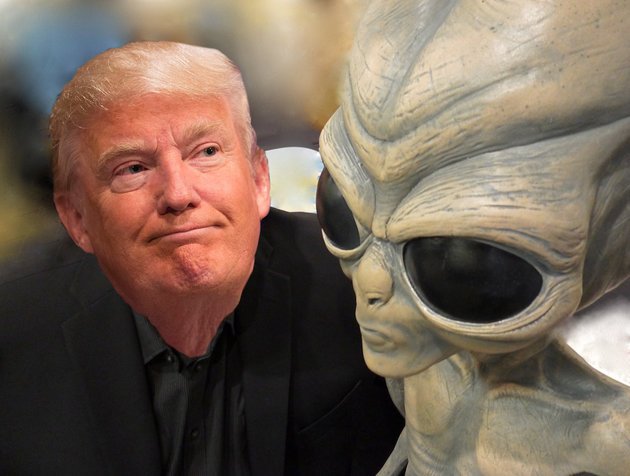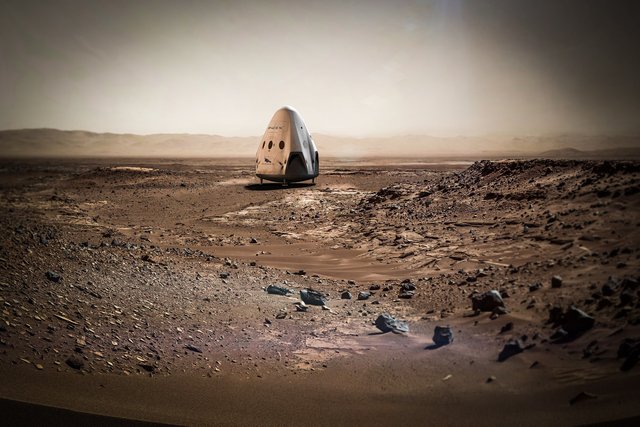
One of the biggest problems of electing a demagogue is that there is no way to know what he will actually do once he takes office. But if Donald Trump fulfills what he promised, albeit only broadly, the future not only of the United States but of the whole civilization will be at stake.
Nor do we need to talk about potential international conflicts and the walls he plans to build to "make America great" by alienating it in the concert of nations. Let's stay at what he intends for NASA, the American civil space agency. Trump wants to cut investments in the study of the most important planet for the future of humanity: Earth.
Like everything else in the president-elect's speech, there are few concrete details. Space politics is not usually a hot topic in presidential campaigns. When questioned in New Hampshire by a ten-year-old boy, naturally excited about space, during an event about his views on NASA, the US president-elect replied: "You know, in the old days, [space] was great. Now we have bigger problems. You understand this? We have to fix our street holes. You know, we do not exactly have a lot of money. "
It's the kind of statement that stirs some trepidation, but it was made a year ago, when even its victory in the Republican primaries seemed unlikely. Has anything changed? As the campaign progressed, Trump began to give more clues - or, as he wished, to the tracks he intended for the space agency.
In a speech last month in Florida, one of the US states most closely linked to the space program, Trump said, "I'm going to free NASA from the restriction of serving primarily as a logistics agency for low-earth orbit activities - great. Instead, I will reconcentrate the mission into space exploration. Under a Trump administration, Florida and the US will lead the way to the stars. "
Well, what exactly does that mean? Without a trumpese-Portuguese dictionary, it is difficult to know. Luckily his team is not as vague as he is.
An article for SpaceNews, Robert Walker and Peter Navarro, two of Trump's top policy advisors on space policy, spells out the new policy more clearly: "NASA should be focused primarily on deep space activities rather than work Earth-centric that would be better driven by other agencies. "
It may sound like good news to those who want to see mankind progress to visit Mars, as President Barack Obama has been defending, but it certainly is not good news for anyone staying here on our troubled home planet. In the wake of Nasa's "Earth-centric" work are major efforts to spatially monitor the effects of climate change.
This NASA turnaround off the Earth without even looking back is even more frightening in view of Trump's denial of global warming agenda over the course of the campaign.
The consensus of 98% of climate scientists is that we are close to a point of no return in terms of dangerous climate change. But Trump threatens to reprise George W. Bush's role in delaying the US reaction to the problem - and we're talking about one of the two biggest polluters on the planet, which is only behind China. At that time, in 2001, backed by the oil industry, Bush rejected the Kyoto Protocol. Now, fifteen years later, Trump promises to rule out the historic agreement reached in Paris.
There is no guarantee that the world will be able to wait another four, eight years, to return to the search for clean solutions to global energy demands. A setback now may mean the end of a still fragile international process to mitigate the impacts of climate change.
In short, it messes up the world's ghetto. That is without speaking in Syria, Russia, China, Mexico or NATO - names that appeared much more often in the presidential campaign than Nasa.
AND THE SUCH EXPLORATION?
Okay, Trump is not a fan of earth science on NASA. But what exactly is he a fan of?

Artistic conception of a SpaceX Dragon capsule on Mars (Credit: SpaceX)
"After taking over the government, we will do a comprehensive review of our plans for space, and we will work with Congress to set priorities and mission," Trump told SpaceNews.
(In fact, to mourn a bit about how empty the President-elect's speech is in contrast to Hillary Clinton's, read all the questions and answers on space sent to the candidates here.)
Personally, every time I hear about "reviewing the American space program," I shudder. It happens with every change of government and it consumes time and money without ever getting anywhere. It happened with George W. Bush, who in the wake of the Columbia space shuttle crash in 2003 launched the so-called "Vision for Space Exploration", predicting a manned return to the Moon by 2020 - this time to stay. When Barack Obama took office, a new "review" was made, concluding that Bush's plan was unsustainable and that a new "vision" was needed - one that would target a more ambitious target, Mars, but with a more elastic deadline - Until the end of the 2030s.
Now, let's take that path of revision again. Probably the two "surviving" elements of the Bush era will continue to develop - the SLS high-capacity rocket (then called Ares V) and the Orion capsule. But I do not doubt that the immediate focus is once again modified, possibly for a return to the Moon, leaving Mars for later.
The only really clear (and positive) thing about Trump's speech to space is the enthusiasm with the participation of private companies, in partnership with NASA, in the development of a robust space industry for the 21st century. Obama's "commercialization of space", which until today found a good deal of resistance in Congress, can be settled during the new administration.
In addition, the adviser Robert Walker also suggested the intention of inviting China to be part of the International Space Station. It remains to be seen whether Trump would espouse this particular idea and whether the US Congress would embark with it. There is currently a US law prohibiting space cooperation with the Chinese.
Anyway, the only thing certain is that we will have uncertain times for NASA from now on. Predictability flew out the window along with the Democratic votes in Wisconsin, Michigan and Pennsylvania.